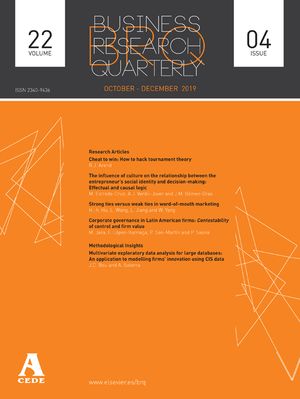El estudio de los factores que influyen en la eficiencia en la utilización del factor trabajo en la provisión de servicios hoteleros es un punto clave en el análisis de la gestión de los establecimientos. Con este fin este trabajo propone la estimación de una función de producción para una muestra de hoteles que permita señalar los principales determinantes de la productividad del trabajo, empleando para ello datos combinados de establecimientos y trabajadores. Los resultados de las estimaciones muestran que la dotación de capital humano de los trabajadores repercute positivamente en su productividad, particularmente la experiencia laboral acumulada por la plantilla en la empresa. Se ha comprobado además que existe una relación negativa entre la importancia del desajuste educativo que afecta a las plantillas de trabajadores y la productividad de los establecimientos.
Analysing the factors that have an impact on workforce efficiency is a key point in the analysis of hotel management. Using a linked employer-employee dataset, this study estimates a production function for a hotel sample that establishes the main labour productivity determinants. This analysis investigates to what extent observable differences in productivity can be affected by the specific characteristics of both workers and the post they hold, as well as the actual characteristics of the establishments. Thus, the workers’ human capital has a positive impact on productivity, particularly the average employees’ tenure in the firm. Additionally, a negative relationship between workers’ educational mismatch and hotels’ performance has been detected.
Los autores agradecen los comentarios de dos evaluadores de la revista. La realización de este trabajo se enmarca dentro del proyecto de investigación 1FD97-0858 del Plan Nacional de I+D del Ministerio de Ciencia y Tecnología.




